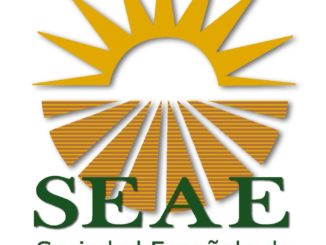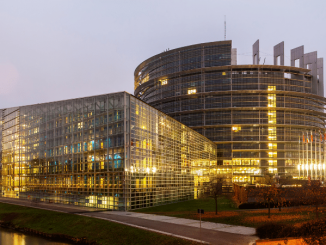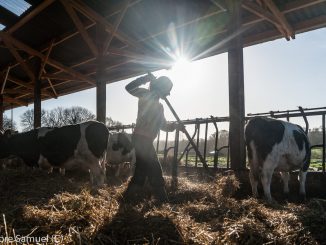
Oliver Moore rounds up the state of play as the mandate of the EU institutions completes. Its not been a good finish ,but there are amazing things happening on the ground. It is from here – from the ground up – that we must build better policy. Editorial from the ARC quarterly newsletter, which you can sign up for here.
I felt the mild joy of curious suprise when I learned that, against the odds, the Corporate Sustainability Due Diligence Regulation had passed the final approval stage in the European Parliament, in the last plenary of the 2019-2024 mandate.
This feeling was tempered when the realisation landed that it still had to get the green light from the Council later this month.
So low now are my expectations of the EU institutions to deliver on anything of substance for social and ecological progress, that I will not hold my breath in waiting for this one small victory for the poorest, most vulnerable, in the global supply chain.
Power Plays
The main lesson from the now complete mandate is that the power of business-as-usual forces to prevent purposeful change still dominates. These forces will use fear and scaremongering, will mobilise who and whatever they need, to prevent anything genuinely transformative from being ushered in.
The evisceration of many of the core ecological conditions of the CAP, along with the rejection of 2/3 of the farm to fork, is an appalling indictment of the institutions, and a slap in the face to the concerned and committed citizens of Europe.
Millions may march, may sign petitions; thousands may make interventions carefully and methodically over the years, to tweak legislative proposals; all it takes is a heady brew of lobby power and political cowardice to reject all of this in a tiny window of time.
Four years were spent making considered interventions on CAP. Yet in four weeks an unprecedented, rule-ignoring, panicked process of legislative re-writing has left CAP gutted. In some cases, we are back at 2003 levels of environmental standards.
Of course the other main legislative failure of this mandate – the EU Green Deal – was disadvantaged from the outset by being a neoliberal solution to structural socio-economic and ecological problems.
Unlike the original New Deal of the 1930s, which was about structural investment and a new social security net, the neo-liberal Green Deal was accurate on the science but bereft on the supports.
Eventually the now-in-limbo Nature Restoration Law had money elements added, but it was too little too late for a minority of the national ministers who rejected it – scrambling backwards, dragged away from facing the reality of climate and biodiversity collapse by fear, weakness and narrow sectorial interests.
A significant majority of Europeans, and of member states wants the Nature Restoration Law. It might just set us on a course that might help us cope with the future we’re facing. And its being binned.
Yes the MFF (Multiannual Financial Framework) of 2027 was always key to unlocking when money and supports for all these EU Green Deal elements would flow, but people don’t find the flavour of ‘pie on the sky’, particularly appealing, to repurpose a very apt phrase from labour organiser Joe Hill in the 1900s.
The EU Green Deal was always under threat when panic set in, spurred on by the impacts but not the causes of polycrisis.
Despite the flaws and reliance on future funding, it is nevertheless a lost opportunity, a travesty and a tragedy that the proposed upgrading of rules and regulations around pesticides, food systems, nature and more will fall by the wayside.
We are in an ecocidal spiral and we’ve balked at the first real hurdle, at the first acknowledgement of the scale of the problem, the first comprehensive attempt to deal with it.
Just when we needed leaders, when we need to face up to reality, we got retraction, retrenchment and a return to a narrow interpretation of national interests.
Hope From the Ground Up

Somehow, hope still exists. It comes from the action in communities, which we keep finding in people all around Europe.
Just as the Sustainable Food System Law was collapsing, we found an amazing crew in Marburg showing us how to do it in reality – as we also saw previously in Plessé. This is policy making from the ground up. This is bringing people together to work things out.
Similarly, the proposal for a Land Observatory in Ireland is about bringing people together to assess, understand and propose how the rural space should be. And, like Plessé and Marburg, farmers are central to the process.
And finally, the Feeding Ourselves gathering in Ireland saw an amazing coming together of dozens of organizations working on policy, on local food frameworks, on agri knowledge, and on land access.
From terra firma up, better policy making happens. Indeed, those four areas just outlined emerged as new informal working groups, which rose organically from the four day Feeding Ourselves event and how it transpired.
The Land Observatory idea in part came from clear thinking from a wide range of people at Feeding Ourselves, thinking deeply and compassionately about what regions need to do to solve a multitude of social and ecological problems.
This is working together. And all of this – the bad news and the good news – is what’s in this seasonal Spring to Summer newsletter. Do have a read, sign up – its free! – or check the links below.
As European elections come up, politicians will be elected who will help or hinder progress at the macro legislative level. We’ll be covering that. But we’ll also cover things happen on, and from, the ground too. We need it all. The stakes are far too high.
More
Green Light Now, Green Fight Later – CAP Fast Track Risks Legal Wrangle
Neoliberal Limits – Farmer Protests, Elections and the Far Right
Protests and Love – France’s Farmer Organisations, Demonstrations and Social Alliances
Letter From The Farm | A Flamenco Approach to Rural Resilience





